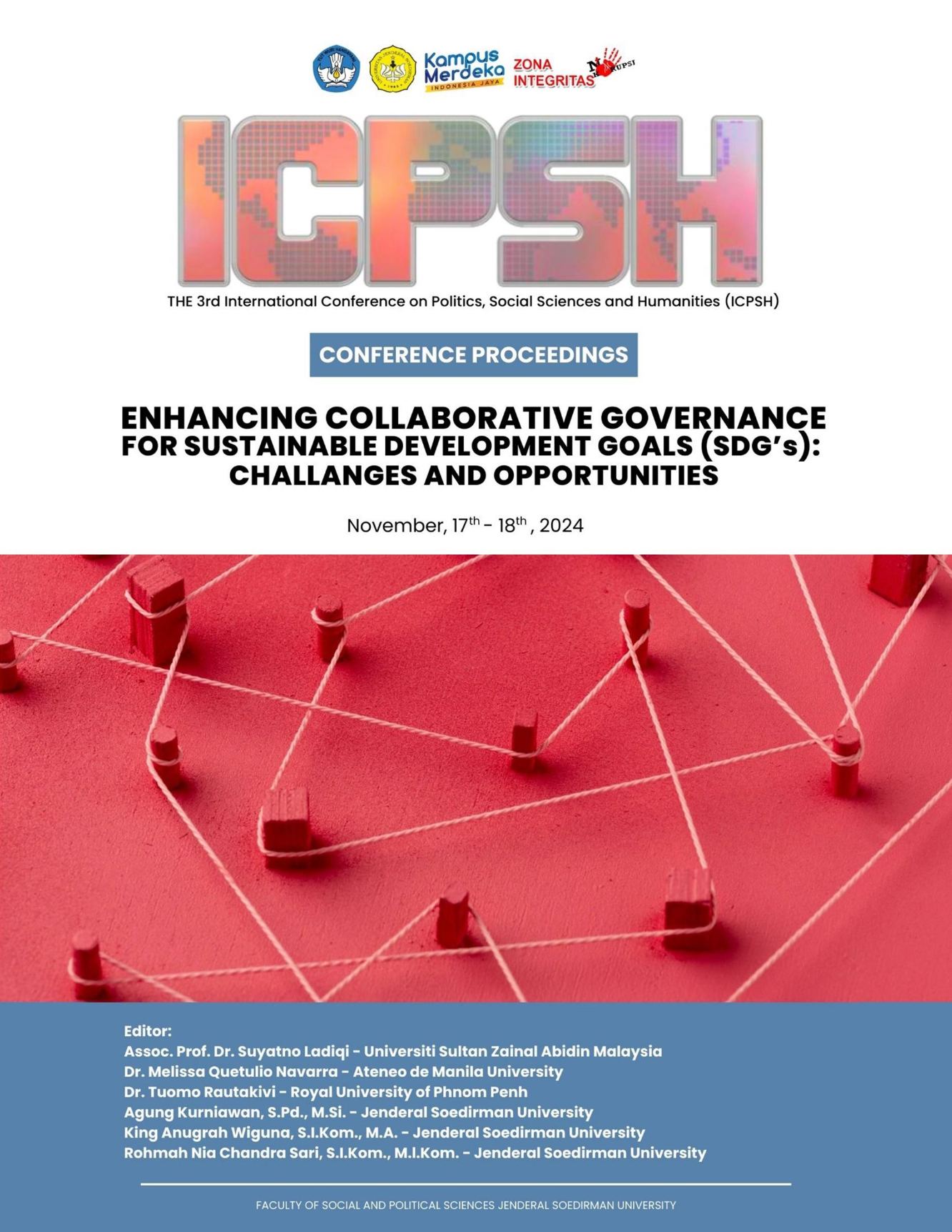Localizing the Sustainable Development Goals (SDGs): The Resilience of ‘Posyandu Cadre’ in Promoting Stunting Reduction Program
Abstract
Since the Sustainable Development Goals (SDGs) were first adopted in New York in 2015, the Indonesian
government has taken a collaborative governance approach to achieving the SDGs targets. This means that
several institutions and different levels of government have been involved in the same SDG initiatives, such
as reducing the prevalence of stunting. While collaborative governance highlights the dominance of state
actors, this paper argues that regarding the stunting reduction, the backbone lies in the hands of Posyandu
cadres, a voluntary group of women who have effectively provided maternal and child health education
to the village women. These mothers, who work with expectant mothers, pregnant mothers, and mothers
with children under 1000 days old, are the unsung heroes of the war against stunting. This research applies
the localization of the SDGs framework to demonstrate how local actors also play essential roles in
implementing international norms and initiatives. This research uses the experience of Posyandu cadres
in Banjar Seminai village, Siak Regency, as a case study of community resilience in reducing stunting.



